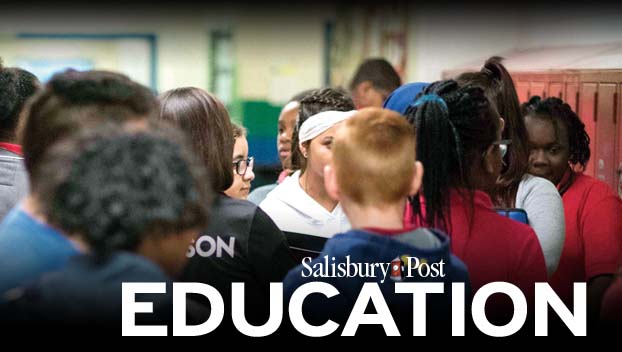Court rules NC charter schools can’t use immunity to thwart suits
Published 11:54 pm Friday, December 17, 2021
By GARY D. ROBERTSON
Associated Press
RALEIGH (AP) — The North Carolina Supreme Court ruled on Friday that nonprofit charter schools can’t avoid facing civil fraud claims alleging mismanagement of taxpayer money by arguing they are immune from such lawsuits like a state agency.
The justices reversed a 2019 Court of Appeals decision that had dismissed claims against Kinston Charter Academy, which closed abruptly to 190 students and their teachers in 2013. A 2016 lawsuit by then-Attorney General Roy Cooper sought financial damages for the state and monetary penalties against the academy, its CEO and the chair of its board.
Charter schools are tuition-free public schools that receive state funds on a per-pupil basis and have more flexibility — with instruction and enrollment among them — than traditional K-12 schools. They are overseen by the State Board of Education.
Kinston Charter Academy and leaders were accused by Cooper’s office of violating the state’s False Claims Act and deceptive trade laws. State attorneys allege the school provided a bogus upgraded enrollment estimate to state education officials that meant receiving additional funds, even as leaders knew the school would not last the 2013-14 school year.
Academy CEO Ozie Hall and his wife, board leader Demyra McDonald-Hall, unsuccessfully sought to get the lawsuit dismissed by a Wake County trial judge. They in turn asked the Court of Appeals to step in, saying the academy was protected from liability under the doctrine of sovereign immunity, which exempts state government from most lawsuits unless an agency consents to be sued.
A three-judge panel of the intermediate appeals court agreed with the academy, saying it was entitled to such immunity and that it didn’t fit the definition of a “person” who is the target of state litigation under the False Claims Act.
Associate Justice Sam Ervin IV, writing the lone opinion for the Supreme Court, emphasized that the General Assembly declined to describe charter schools as agencies of the state in the law authorizing them in the 1990s, but rather entities that “operate independently of existing schools.”
State government attorneys wrote in a brief that sovereign immunity doesn’t make sense because any financial judgement would be paid by the Kinston school, rather than the state treasury, which the immunity doctrine is designed to protect. Even while charter schools appear to have a form of immunity similar to that of local school boards, it likely wouldn’t matter because the state’s sovereignty is superior, according to an opinion footnote.
As for the False Claims Act, a charter school would appear to fit the definition of a person given what the state’s goal is regarding the fraudulent use of taxpayer funds, according to Ervin.
“The obvious purpose of the False Claims Act is to ensure that public funds are spent in the manner for which they were intended instead of being misappropriated, misspent or misused,” he wrote, while reversing most of the Court of Appeals decisions. The Supreme Court did uphold the Court of Appeals ruling that Ozie Hall cannot be dismissed from the complaint for now on claims that he was immune as a public official. The case, which now returns to Wake County court, has not gone to trial.
The academy, which had struggled financially for years, enrolled barely half of the 366 students that it had estimated it would enroll in fall 2013, contributing to an overpayment by the state of more than $344,000, Friday’s opinion reads. The lawsuit also alleged students were misled into thinking the school would remain open.
Associate Justice Phil Berger Jr. wrote the 2019 Court of Appeals opinion dismissing claims at the school when he served on that court. He didn’t participate in the deliberations leading to Friday’s ruling, the court said.





